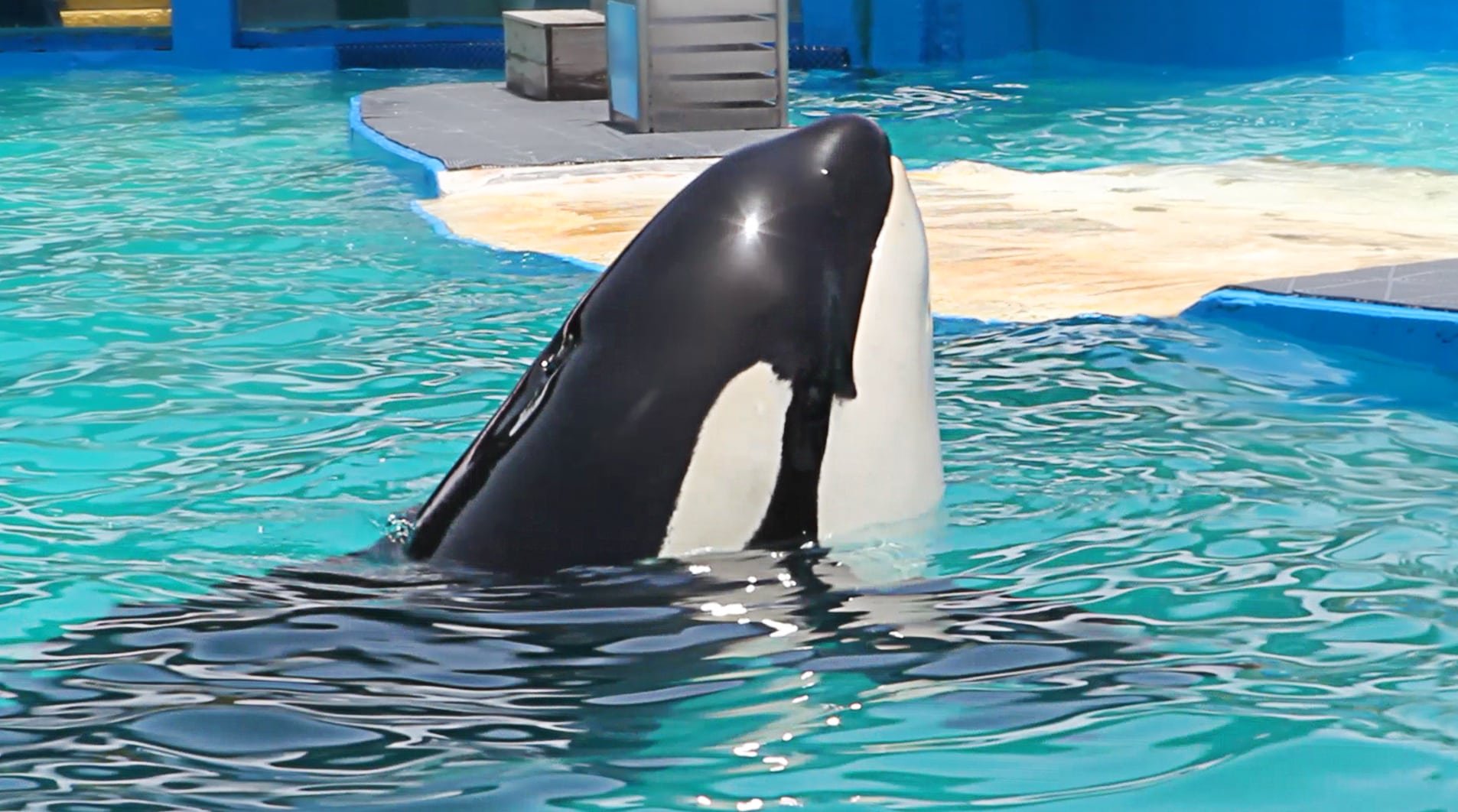Toki’s return home is not scary
Planning is now underway to return Lolita, aka Tokitae, aka Sk’aliCh’elh-tenaut, from the Miami Seaquarium to her home waters in the Pacific Northwest. On March 30 The Dolphin Company, owner of the Seaquarium, along with the non-profit Friends of Toki, who have dramatically improved her water quality, joined by philanthropist Jim Irsay, announced a signed agreement to work together toward retiring Toki in her native habitat, where she was born and taught how to be an orca by her mother and family.
How Ken Balcomb got involved in bringing Lolita home.
In early June of 1993, just after I started driving across the US on my way to San Juan Island to rejoin Ken and take part in the ongoing photo-identification research, I noticed a movie marquee that said "Sneak Preview - Free Willy!" I sat in a front row, from which the glorious moving images of Southern Resident orcas filled the screen and took my breath away. These were whales I had encountered numerous times ten years previously when I assisted the research. I was deeply touched to see them magnified even larger than real life.
Is Toki damaged by captivity?
A few months ago an important paper was published to establish the harm done to the brains of captive elephants and cetaceans. Putative neural consequences of captivity for elephants and cetaceans by Bob Jacobs, et al. provides “a substantive hypothesis about the negative impact of captivity on the brains of large mammals” The paper supplements observations of pathological behavior like chewing on hard surfaces or head-banging against a wall, and biomedical symptoms of stress, and adds neurological damage that likely accompany such symptoms.



